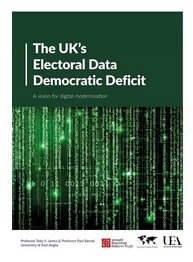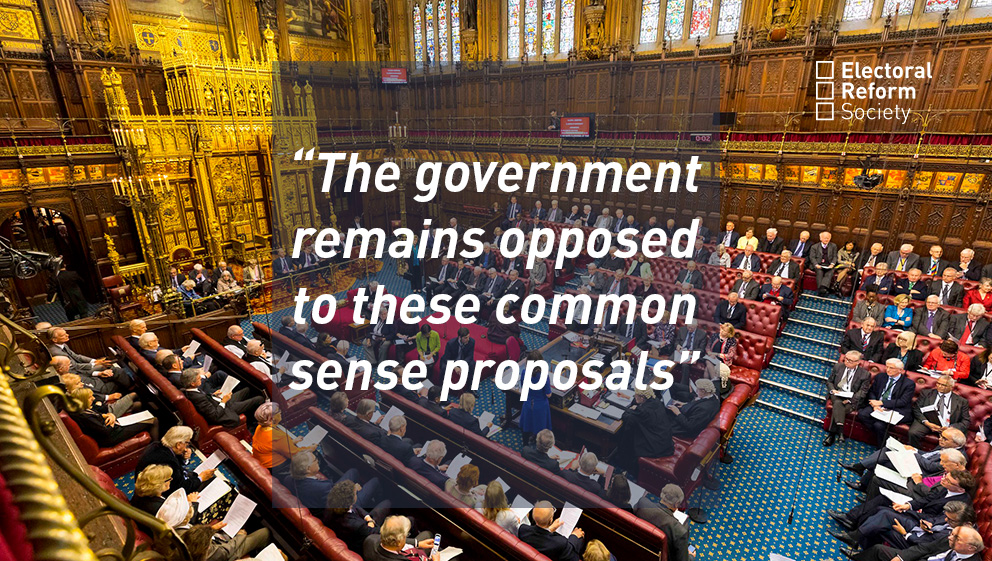Author’s Note: This article is a continuation of our series on constitutional reform, building on the case for a federal Britain. The ideas presented here are a blueprint for a democratic and accountable second chamber, one that serves as a cornerstone of a decentralized United Kingdom. This piece completes our current series on systemic change.
For centuries, the British constitution has been a study in paradox: a celebrated tradition of unwritten rules and gradual evolution that has nonetheless resulted in a deeply unequal and centralized system. At the heart of this paradox lies the House of Lords, a chamber of Parliament that remains a stark and glaring anachronism in a modern democracy. Comprised of hereditary peers, political appointees, and a contingent of unelected religious figures, its composition is a throwback to a feudal past. While its powers have been significantly curtailed, it is a chamber that lacks the democratic legitimacy to function as a genuine check on the executive, let alone represent the diverse needs of the nation.

The time has come to complete the unfinished business of constitutional reform. We must move beyond piecemeal changes and build a new, fully elected upper chamber that is truly fit for the 21st century. This new chamber would not only provide a powerful democratic check on the House of Commons but would also serve as the beating heart of a federal Britain, giving a voice to the regions and communities that have long been marginalized by a remote Westminster. The current system fosters a deep-seated cynicism in the public, who rightly question how a nation can be called a democracy when a portion of its legislative body is determined by the accident of birth or the patronage of political leaders. This article lays out a practical and principled path forward, one that replaces an archaic institution with a democratically legitimate and regionally representative body.
A Democratic Mandate for a Second Chamber
The first and most critical step is to abolish the existing House of Lords and replace it with a chamber of democratically elected representatives. This would be a radical break from the current system, which sees hereditary peers—often chosen through absurd by-elections—and political donors or party loyalists appointed for life. The practice of hereditary peer by-elections, a procedure where a small number of aristocrats vote to fill a vacant seat in Parliament, is a symbol of how out of touch the current system is. These by-elections, which often have just a handful of voters and are treated with bemusement by the public, are an affront to the principle of one person, one vote. A wholly elected chamber, in stark contrast, would possess a genuine mandate from the people, allowing it to scrutinize legislation and hold the government to account with an authority that the current unelected body can never claim. The debates surrounding the future of hereditary peers and the practice of political appointments (as highlighted by the Electoral Reform Society’s analysis of the Grocott Bill) demonstrate the clear and urgent need for this reform. As the public’s trust in political institutions erodes, restoring a fundamental democratic principle to the legislative process is a vital first step in reversing that trend. This new model would also eliminate the cronyism inherent in the current system, where wealthy donors and party allies are rewarded with peerages, creating a troubling link between political influence and financial patronage. A democratically elected chamber would break this cycle, ensuring that members are accountable to their constituents, not to the individuals who appointed them.
A Parliament of the Counties
In a truly federal Britain, the new upper chamber should reflect the diverse and distinct identities of the United Kingdom. Therefore, representatives should be drawn from the traditional counties of the United Kingdom. Each county would be an electoral constituency, a fixed frame of reference to which all other constituencies—from Westminster to local council boundaries—must conform. This principle is vital to prevent the gerrymandering and fragmented loyalties that arise when electoral districts traverse historical boundaries. For decades, the arbitrary redrawing of local government boundaries has created a disjointed patchwork of jurisdictions that often bear no resemblance to the historic communities they are meant to serve. This leads to confusion and a weakened sense of local identity, and it makes it difficult for residents to feel a sense of ownership over their local governance. By making traditional county boundaries the unchangeable foundation for all electoral districts, this reform would restore a sense of continuity and shared heritage, strengthening civic pride and local allegiance.

To ensure fair representation across the nation, the number of seats allocated to each county would be based on an approximate ratio to its population, for example, one seat per 250,000 people. This proportional allocation would guarantee that regions with larger populations have a corresponding weight in the new chamber, without leaving smaller counties unrepresented. It would also empower regions with strong local identities and populations, such as Yorkshire, to speak with a unified voice. Yorkshire, in this model, would be divided into three constituencies: West, East, and North & York, each with its own directly elected representatives. This reform would not only give power back to the people but would also honor the rich cultural and historical identity of Britain’s communities. By creating a chamber where representatives are accountable to a geographically defined community, it would also provide a powerful counterbalance to the highly centralized power of London, ensuring that regional voices are heard in the heart of government.
The Principle of Proportionality and a Restored Veto
For the new upper chamber to function as a truly representative body, it must be elected by a system of proportional representation (PR), similar to the elections for Members of the European Parliament. This is a critical departure from the antiquated First Past the Post (FPTP) system, which often produces a winner-take-all outcome that leaves millions of voters feeling unrepresented. Indeed, as the Electoral Reform Society has highlighted, a recent General Election left millions of voices unheard due to this flawed system. Under FPTP, a candidate can win a seat with a minority of the votes, and millions of votes for losing parties are effectively wasted. A PR system, by contrast, would ensure that the new chamber accurately reflects the diversity of political thought across the country. It would foster a more collaborative political culture, where a single party is less likely to hold absolute power, encouraging cross-party cooperation and compromise. This would make the legislative process more robust, as bills would need to earn broader support to pass, reducing the risk of ideologically-driven or poorly-thought-out legislation.
Elections for this new chamber would take place every four years on a fixed schedule, asynchronously with the House of Commons’ schedule. This staggered electoral cycle would prevent a single-party majority from dominating both houses and would provide a powerful institutional check on the executive. For example, if a government with a small majority in the Commons were to lose the upper chamber election, it would be forced to seek consensus on its legislative agenda. This bicameral check would be an essential tool in preventing the government of the day from pushing through controversial legislation without due scrutiny. Furthermore, this new chamber must be more than just a debating society. It is imperative that it be given the authority to restore its power of veto on all constitutional legislation, including electoral reform. This bicameral check would provide a crucial safeguard against a government attempting to consolidate power without a broad consensus, ensuring that fundamental changes to the nation’s governance are approved by both a geographically representative chamber and the primary legislative body. This reform is the ultimate safeguard against a government’s overreach, ensuring that no single party can unilaterally change the fundamental rules of the British state.
A Coherent and Accountable Government
This new system would require the dismantling of several current, often-criticized, political roles that lack a clear mandate, such as Police and Crime Commissioners and Directly Elected Mayors. These roles, often created in a piecemeal fashion, add an extra layer of bureaucracy and often confuse lines of accountability. They were designed to provide a layer of local democratic accountability, but their limited powers and low public profile often leave them disconnected from the communities they serve. Their functions would be absorbed by the new county regions, creating a more coherent and accountable structure. The entire system would be overseen by an independent Electoral Commission to ensure fairness and transparency. The move away from a patchwork of local authorities and towards a unified, county-based system with real power is the logical next step in our nation’s evolution. It is a fundamental rejection of a one-size-fits-all model and a commitment to a new social contract—one that places faith in local governance, honors regional identities, and empowers communities to take control of their own destinies. This is a vision that replaces fragmentation and patronage with coherence and democratic accountability.

This new vision is not a radical break from Britain’s traditions but a fulfillment of its democratic promise. It honors the spirit of those who have fought for a fairer and more accountable system, from the signatories of the Magna Carta to the advocates for modern electoral reform. It is a blueprint for a stronger, more resilient Union, one built on a foundation of trust, transparency, and genuine representation.
References
- Electoral Commission. (n.d.). Available at: https://www.electoralcommission.org.uk/
- Electoral Reform Society. (n.d.). Available at: https://www.electoral-reform.org.uk/
- British Counties Campaign. (n.d.). Available at: https://britishcounties.org/
- Association of British Counties. (n.d.). Available at: https://abcounties.com/
- Historic Counties Trust. (n.d.). Available at: http://www.county-borders.co.uk/
- The Constitution Unit. (2022). “The Grocott Bill and the future of hereditary peers in the House of Lords.” Available at: https://constitution-unit.com/2022/02/09/the-grocott-bill-and-the-future-of-hereditary-peers-in-the-house-of-lords/
- Electoral Reform Society. (2022). “How are the members of upper houses chosen around the world?”. Available at: https://www.electoral-reform.org.uk/how-are-the-members-of-upper-houses-chosen-around-the-world/
- Hymas, C. (2021). “Archbishop of Canterbury: Getting vaccinated against Covid is a moral issue.” The Telegraph. Available at: https://www.telegraph.co.uk/news/2021/12/22/archbishop-canterbury-getting-vaccinated-against-covid-moral/
- Livingston, S. (2021). “A Labour Peer is trying to abolish hereditary peers (again).” Electoral Reform Society. Available at: https://www.electoral-reform.org.uk/a-labour-peer-is-tying-to-abolish-hereditary-peers-again/
- politics.co.uk. (2021). “Bill to scrap ‘absurd’ hereditary peer by-elections returns to the Lords.” Available at: https://www.google.com/search?q=https://www.politics.co.uk/news-in-brief/bill-to-scrap-absurd-hereditary-peer-by-elections-returns-to-the-lords/
- Narcross, J. (2021). “There is nothing democratic about these by-elections.” Electoral Reform Society. Available at: https://www.electoral-reform.org.uk/there-is-nothing-democratic-about-this-weeks-by-elections/
